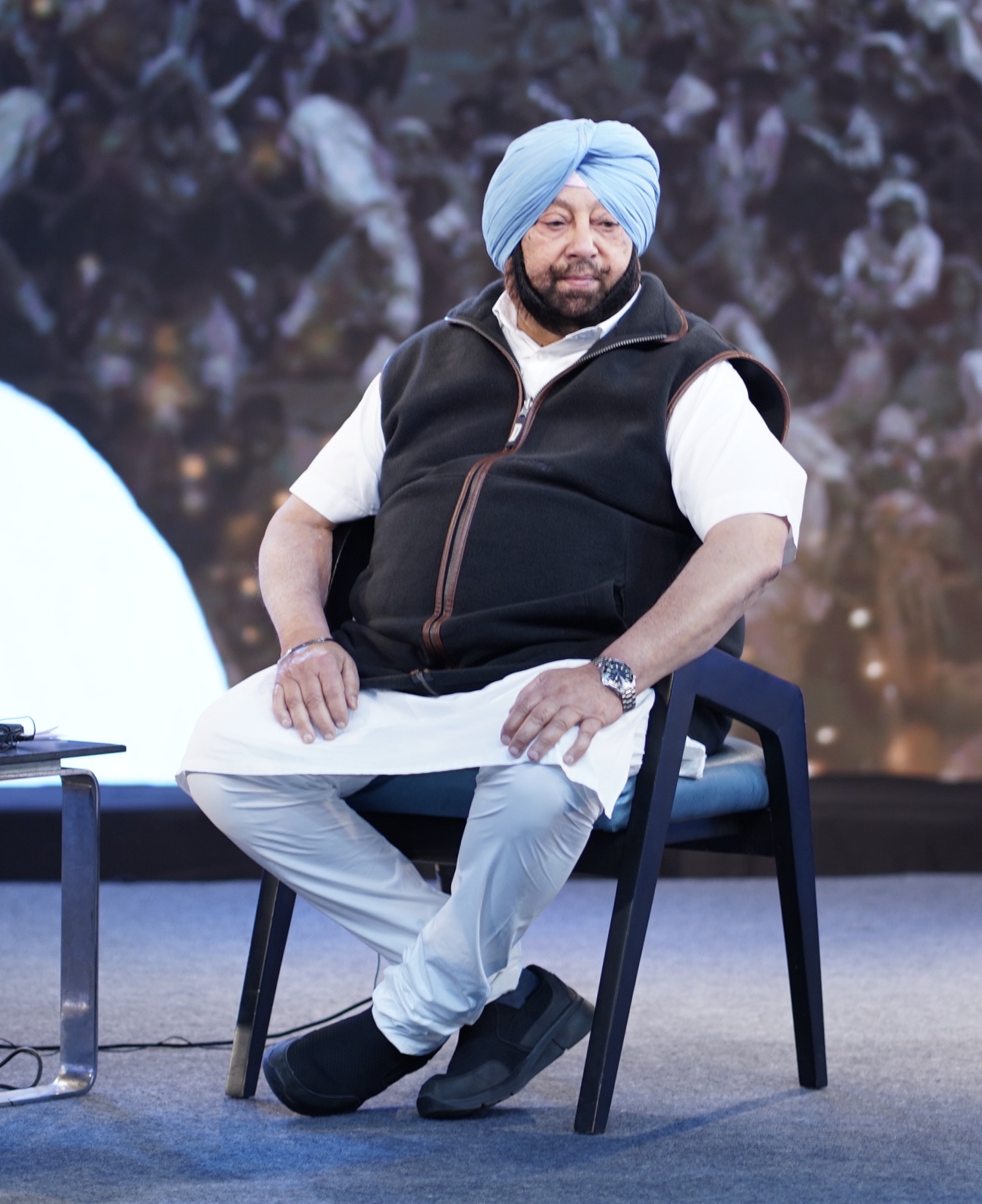URGES UNION JAL SHAKTI MINISTER TO CUT DOWN GST ON TREATMENT PLANTS & PURIFICATION MEDIA FROM 18% T0 5%
SEEKS DECLARATION OF KANDI BELT VILLAGES AS `HILL AREA’ TO REDUCE BENEFICIARY CONTRIBUTION UNDER JJM
Chandigarh, May 18:
Punjab Chief Minister Captain Amarinder Singh on Monday said the state was all set to provide 100% potable piped water connections to all the rural households by 2022, with a whopping 50% of these households already covered with individual household water connections.
In a Video Conference with Union Jal Shakti Minister Gajendra Singh Shekhawat, the Chief Minister said that as of April 1, 2020, of the 1634 habitations in which ground water was impacted, 477 had been provided potable water, and the state was committed to covering all rural households with piped water supply connections by March 2022, in line with the target of the Punjab Government even before the conceptualization of Jal Jiwan Mission by the Central Government.
To further boost the state’s efforts this direction, the Chief Minister sought reduction in GST on treatment plans as well as purification media from the current 18% to 5%, in order to make the Jal Jiwan Mission (JJM) schemes sustainable in the long run. He pointed out that media in the water treatment plans need to be replaced every 2-3 years.
Captain Amarinder also urged the Union Minister to recognise the 1449 Kandi belt villages as `Hill Area’ to reduce the beneficiary contribution, from 10% to 5%, for construction under the Jal Jiwan Mission (JJM).
It was imperative also for the Central Government to support the state in availing finance from NABARD and other multilateral agencies to provide for the State share under JJM, he said. Further, he urged the Union Ministry to take up with DEA the issue of multilateral agencies, currently providing financing for water and sanitation sector, to allow country specific procurement practices (like rate contracts) to expedite procurement instead of insisting on their own procurement procedures.
On the issue of the Kandi belt villages, the Chief Minister said the state government had been repeatedly raising the subject with the Government of India for the past two years, but no action had yet been taken. These villages are akin to neighbouring villages of Himachal Pradesh which are receiving funding on a 90:10 sharing basis, with beneficiaries residing there required to contribute only 5% towards the cost of the scheme, he noted. The Kandi belt villages should also be treated at par with DDP and DPAP areas to facilitate the beneficiaries, particularly in view of the high cost of boring tubewells and construction schemes, he added.
Regarding the status of universal coverage of piped water supply in Punjab, the Chief Minister said as of April 1, 2020, 17.48 Lac households had been covered. Of the remaining 1759542 households, 760000 are proposed to be covered in 2020-21, and the remaining in 2021-22. In terms of habitations, the state has already covered 92% of the rural habitations with piped water supply network, and 50% rural households have been provided with individual household water connections, he added.
Captain Amarinder further apprised the Union Minister, that Punjab has, since 2009, had community participation as an integral part of its strategy to develop new schemes, all of which are planned and executed with the participation of the Gram Panchayat Water Supply and Sanitation Committees, which have been constituted in all villages. Beneficiary share is also being collected from individual households to ensure that ownership in assets created, he added.
Underlining the state’s consistent focus on service delivery parameters for water supply, the Chief Minister said that the norm fixed is 70 litres per capita per day and 10 hours supply per day. However, there are many villages where the State has been able to achieve 24×7 supply also, he added.
The Operations &Maintenance of 4351 water supply schemes out of a total of 8240 schemes (52%) is presently being managed by GPWSCs of which 2770 schemes are running on a financially sustainable basis, said the Chief Minister.
Further, to ensure financial sustainability for O&M of rural piped water supply schemes, the water tariff is being levied and collected @ Rs. 135/- per household per month for water supply schemes run by DWSS. During 2019-20 a total of Rs. 92 Cr. was collected on account of user charges, which were utilized for payment of electricity bills and maintenance of water supply schemes in the ratio of 75:25. Tariff in GPWSC managed villages is being levied and collected by the GPWSCs themselves, Captain Amarinder shared.
The Chief Minister appreciated the recent instructions of the Ministry directing that 50% of 15th Finance Commission grants being issued to rural local bodies will be tied for water supply and sanitation works. Panchayats will now have some funds to carry out the maintenance of rural water supply schemes including payment of electricity charges, purchase of sodium hypochlorite for chlorination, repair of machinery etc, he noted.
Captain Amarinder assured the Union Minister that Punjab is willing to provide the State share for JJM and has been regularly releasing the State share even for the NRDWP and NWQSM Projects.

 हिंदी
हिंदी






